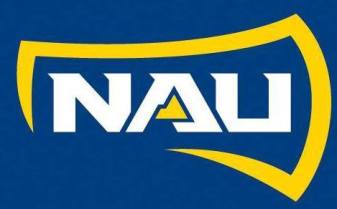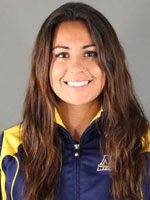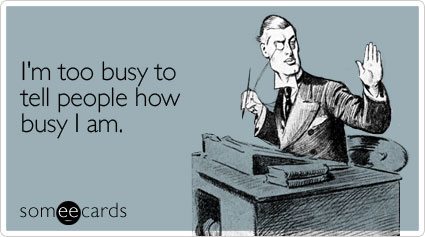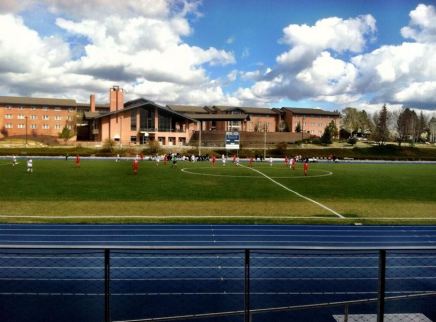Many students scramble to find part-time jobs during the school year to help pay for necessities or even fully support their school expenses (massive props to you folks). While these students gain valuable job experience, there are others that are not able to hold even a part-time job due to extensive commitments. Our busy NAU athletes rarely have time to fit in a job in addition to their academic and sports obligations- yet they still gain valuable transferable skills. How do they do it? Nicole Sherwin, majoring in biomedical science from San Diego, plays center mid on the NAU Women’s soccer team and shared her experiences with us.
What is an average day like for Nicole?
“Every day involves some sort of workout (sometimes two); whether that is a practice, weight-room session, or “day off” gym workout on my own. I go to my classes and usually stay on campus before practice. In the locker room we have a meeting room with a smart board and I like to go in there to study and sometimes watch a game that is on that day. Once 1:00 rolls around I get dressed for practice and head to the training room to get taped or do rehab exercises. Once practice is over, sometimes I have to go straight to another class so I either grab a snack from the HLC pharmacy or eat something I packed. After class (I usually get home between 8 or 9, depending on the day and the lab), I make and eat dinner, study, and then sleep. On the days I don’t have after practice class, I go home earlier and have more time to study.”
Needless to say, Nicole’s busy! When asked if time-management is an important part of being a collegiate athlete, she said:
“Most definitely. There are many things that a student-athlete has to learn to keep in balance to be successful. There are practices I can’t miss, weight-room trainings I can’t miss, classes I have to be at, and homework problems to do. Not to mention fitting in meals, and sleep that are essential for physical and mental success. I find that there are parts of my schedule that are more flexible, like when I choose to study and sleep, and there are the concrete factors like practices and classes that I can’t choose a time for… I find that I have to study in between my commitments and sometimes at weird times or in weird places, especially when on the road for competition.”
Time management is a major skill that employers look for. Being able to manage your time shows organization and ability to prioritize responsibilities. What about communication?
“Every game requires communication. In soccer, we don’t get timeouts. We have the game and we have half-time to solve any problems we come across. Communication on the fly is essential for the team to do well. We signal, point, yell, make eye contact, talk when the ball goes out-of-bounds, listen, watch. I remember a specific time when I just made eye contact with one of my forwards, (she was my roommate for a while so I guess you could say we didn’t need much more than that to communicate) and she made the perfect run behind the defense as I lobbed the ball over. I don’t think it ended up being a goal-scoring play, but it was definitely a successful one.”
Demonstrating to an employer that you have the necessary skills doesn’t always mean using previous jobs as an example. In Nicole’s case, her ability to communicate during half-time is a valid demonstration of her communication skills. Nicole told us how she feels her role as a college athlete will help her in her career:
“All the lessons that I have learned and the skills I have developed via soccer have made me a stronger person overall. I don’t give up, I can work with people, I take responsibility for my faults as well as my successes, I learn from every situation, good or bad, and know how to push myself to my limits. I know how to stay organized, punctual, and focused. I know how to manage my time and represent myself and my institution in a positive way. I know how to be humble, I know how to problem solve, and I’ve learned to appreciate every opportunity I get.”
Already, we have learned that Nicole has gained time-management, communication, focus, and punctuality from being on the NAU women’s soccer team. These are all highly valuable, transferable job skills! If you thought that sports were only about athleticism and Gatorade cooler dumps on coaches, you might be mistaken! Nicole has shown us that you don’t necessarily need a job or internship to gain career-relevant skills.
When Nicole brings her resume draft to our walk-in career advising session, we’ll be able to elaborate on all of her abilities! If you want to get some more awesome information on career-relevant skills you might not have thought of, be sure to check out our Professional Development Guide.




